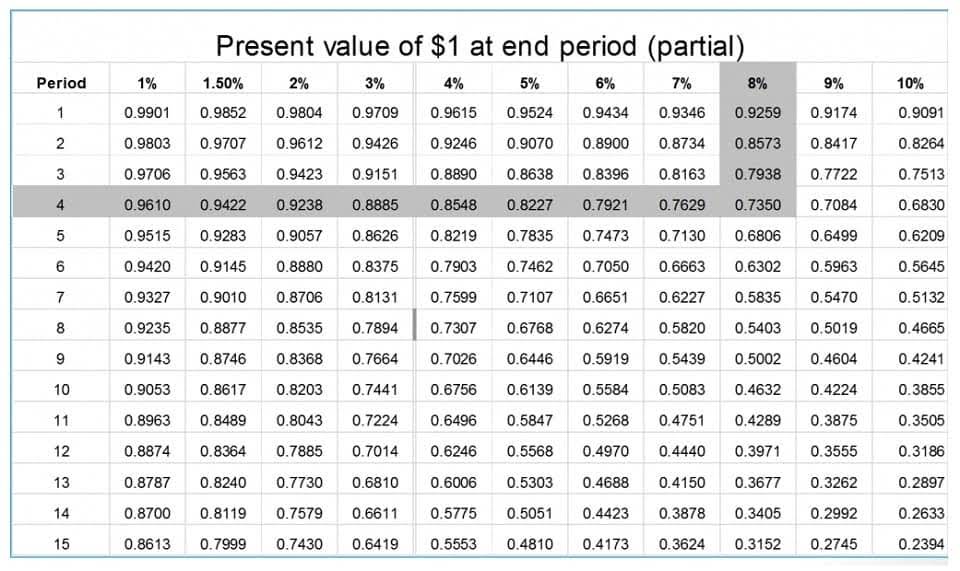
Publicly traded companies are collectively owned by the shareholders who hold its stock. Mr. Isaac and others have suggested allowing firms to use discounted cash flow analysis to value assets in a financial crisis. Discounted cash flow analysis is a cornerstone of modern finance and none can deny that, properly done, a discounted cash flow analysis would produce a good estimate of the economic value of an asset. Unfortunately, it could be difficult to reach a consensus on the proper way to do a discounted cash flow analysis in a financial crisis.
Accrual basis accounting (or simply “accrual accounting”) records revenue- and expense-related items when they first occur. Accrual accounting recognizes that $2,000 in revenue on the date of the purchase. The method contrasts with cash basis accounting, is mark to market accounting legal which would record the $2,000 in revenue only after the money is actually received. In general, large businesses and publicly traded companies favor accrual accounting. Small businesses and individuals tend to use cash basis accounting.
What is Mark To Market?
This isn’t true for a position trader (a trader who holds positions longer than a day trader). A position trader who makes the mark-to-market election loses the ability to do year-end tax planning by selling losers and holding winners. Generally accepted accounting principles (GAAP) describe a standard set of accounting practices. GAAP are endorsed by organizations including the Financial Accounting Standards Board and the U.S. One well-known alternative is International Financial Reporting Standards (IFRS).In the United States, privately held companies are not required to follow GAAP, but many do. However, publicly traded companies whose securities fall under SEC regulations must use GAAP standards.
- If the stock has gone down, you get to report a loss without actually selling it.
- The Federal Reserve noted that mark to market might have been responsible for many bank failures.
- It includes assets being held for sale, those in the process of being made, and the materials used to make them.
- Revenues and expenses recognized by a company but not yet recorded in their accounts are known as accruals (ACCR).
- Accounts receivable ( AR) tracks the money owed to a person or business by its debtors.
- Many banks complain that the market prices that are available are misleading because they may reflect sales by banks or other investors who are willing to book enormous losses just to get these assets off their books.
A receipt is an official written record of a purchase or financial transaction. Receipts serve as proof that the transaction took place and allow those transactions to be processed for tax purposes. A liability (LIAB) occurs when an individual or business owes money to another person or organization. Bank loans and credit card debts are common examples of liabilities. We also explain relevant etymologies or histories of some words and include resources further exploring accounting terminology. Our accounting basics dictionary includes dozens of important terms.
Accounts Receivable
At some point, accounting for all the wash sales becomes nearly impossible. Eliminating this concern is a significant benefit of the mark-to-market election. Beginning in 1997, the tax law has permitted securities traders (as well as commodities dealers and traders) to elect a method of accounting called the mark-to-market method. Many securities traders will find this election attractive as a way to make filing simpler — and possibly reduce their taxes.

In their desperation to sell more mortgages, they eased up on credit requirements. If the company uses historical accounting principles, then the cost of the properties recorded on the balance sheet remains at $50,000. Many might feel that the properties’ worth in particular, and the company’s assets in general, are not being accurately reflected in the books. Due to this discrepancy, some accountants record assets on a mark-to-market basis when reporting financial statements. Basic accounting concepts used in the business world cover revenues, expenses, assets, and liabilities. These elements are tracked and recorded in documents including balance sheets, income statements, and cash flow statements.
Why It May Be Time for Your Bank to Expand into Dealer Commercial Lending
Debt capital covers money obtained through credit instruments such as loans. The mark-to-market rule was intended to serve this purpose; whether it in fact does so is at issue. The critics of the rule argue that in a crisis the rule fails to serve this purpose because current market values are distorted. The distortion arises because liquidity has dried up so much that there are few sales and the sales that do occur are made at distressed prices by companies that must sell. Other companies that hold the same or similar assets must then value those assets based on the distressed sale prices, even though they may have no intention of selling the assets in the near future.
Accounting also serves as a useful way for people and companies to honor their tax obligations. First, let’s make sure you don’t run afoul of the Internal Revenue Service (IRS). In fact, the IRS has very strict rules to determine whether you qualify—by its standards—as a full-time trader and are entitled to use what is informally referred to as the “trader’s election.”
Recent news from Treasury’s Office of Foreign Assets Control: April 26
Income statements are one of three standard financial statements issued by businesses. For example, a company that hired an external consultant would recognize the cost of that consultation in an accrual. That cost would be recognized regardless of whether or not the consultant had invoiced the company for their services. Others include accrued costs (costs incurred but not resolved during a particular accounting period) and accrued expenses (expenses or liabilities incurred but not resolved during a particular accounting period). Mark-to-market defenders say that using market prices is the best way to derive honest values.

In most situations, changing to a system where the trader reports the gains as ordinary income will not have any tax cost. If the trader has capital losses from an investment that isn’t part of the trading activity, though, the trader will lose the ability to offset those losses with capital gains from trading. If you make the mark-to-market election, your trading gains and losses are converted to ordinary income and loss.